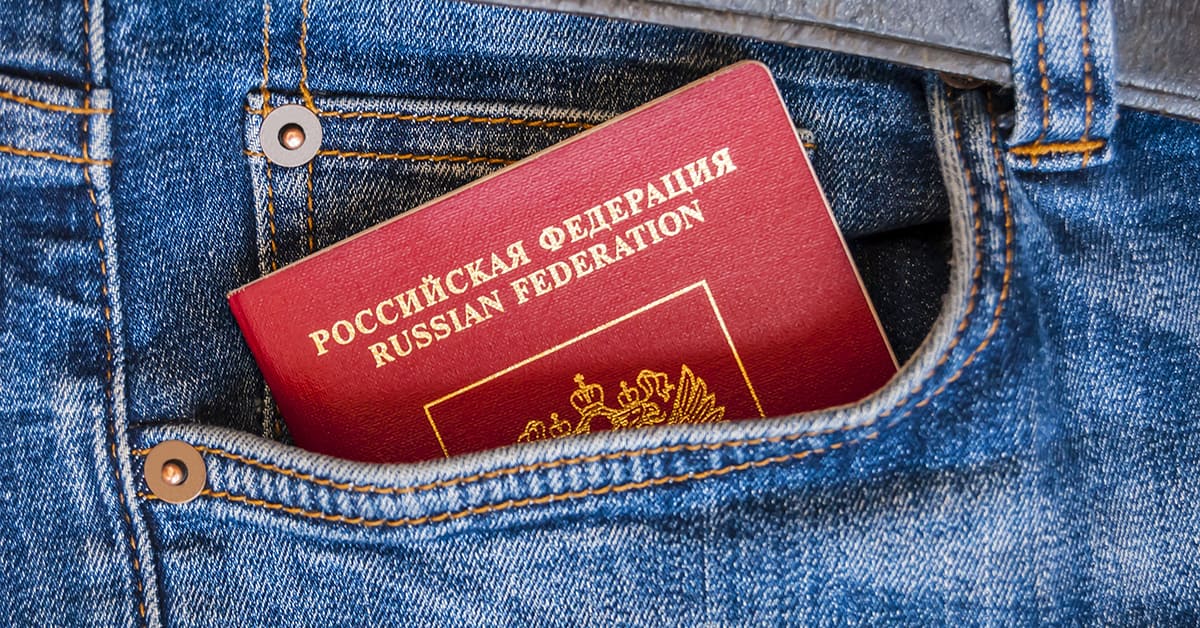Russia's best and brightest are leaving the country in search of a better life amid sanctions and international isolation.

The Russian economy is facing withering Western sanctions as a result of its four-week-old invasion of Ukraine, but it is the recent emigration of so many of its talented, tech-oriented young people that might prove most costly in the end.
While much of the evidence of human capital flight about Russia remains anecdotal, there are good indications that “people are getting out of Dodge,” John Herbst, former US ambassador to Ukraine, tells Global Finance.
Around 200,000 to 300,000 Russians have left the country in the past three-and-a-half weeks, according to estimates, with emigration particularly strong “among the educated middle class which has the necessary financial means,” according to the Institute of International Finance (IIF) in its March 23rd Macro Notes newsletter.
“They are losing some of their most creative, independent, self-starting people,” Herbst adds. Meanwhile, the IIF expects Russia’s economy to contract 15% in 2022 due to the war in Ukraine. “‘Brain drain’ and low investment will weigh heavily on already-subdued potential growth,” IIF says.
“The plane from Moscow to Yerevan [Armenia] was packed with people I knew,” Boris Nikolsky, a classics professor who just left, recently told the New York Times. “Lots of young people—the future of Russia is leaving.”
An Accelerating Trend
Russia’s “brain drain” is nothing new, strictly speaking. Rather it is the acceleration of a trend that has been building for the past decade. In 2019, Herbst co-authored an Atlantic Council study titled “The Putin Exodus: The New Russian Brain Drain,” which reported that a higher proportion of the educated and highly educated had been leaving Russia since Putin returned to the presidency in 2012. As many as 2 million had emigrated as of 2019.
“Now there are indications of something similar,” Herbst says. Many of those departing had managed to carve out a “space” for themselves in Putin’s Russia. But the dictator recently dialed up the repression, shutting down Russia’s last independent television news station and curtailing Internet access, among other measures. “That space is closed now.”
A Price To Be Paid?
Will Russia suffer consequences if it loses its best and brightest? “Human-capital losses cannot be immediate, though they might be devastating in the long-term,” Konstantin Sonin, John Dewey Distinguished Service Professor at the University of Chicago, tells Global Finance.
Sonin ignited much of the most recent “brain drain” discussion when he posted on Twitter on March 8 that “more than 200,000 people fled Russia during the last 10 days. The tragic exodus not seen for a century.” He based his lower-bound estimate on government statements and an analysis of airline flight data. Among the destinations for those fleeing were Armenia, Georgia, Turkey, Israel, Kazakhstan, Kyrgyzstan, Latvia, Estonia and Finland.
It’s difficult to quantify the potential impact of human capital flight, however. “There is no mechanism that translates such a flight into real-time damage,” Sonin tells Global Finance. “The sanctions do a lot of damage, but they cannot ‘stop the economy dead.’”
If Russia loses its entrepreneurs, engineers, and scientists, will others gain? History suggests that possibility. Both the US and Great Britain were “enriched” by the emigration of scientists (e.g., Albert Einstein) fleeing Nazi Germany in the 1930s notes Herbst. The Soviet Union’s 1956 invasion of Hungary drove out a quarter of a million Hungarians, some of whom found their way to the US, including Intel Corporation founder Andrew Grove. There are other stories like these.
Carsten Brzeski, global head of macro research and Chief Economist Eurozone at ING, isn’t sure about the certainty of Russia’s loss, however. “Leaving now is almost impossible as Russia closed its borders,” he tells Global Finance, “But also highly unlikely as the question remains how and where these Russians could migrate to. I don’t see yet that Western countries would currently easily let in Russians. The domestic situation in Russia would first have to get worse before we start seeing a brain drain of a large magnitude.”
“It depends on the extent of the brain drain,” adds Herbst. If Russia loses most of its scientists and their progeny—Russia’s future, presumably—it could be very significant, he says.
Some Of The Most Innovative Minds
A brain drain may be facing Ukraine, too, though that may seem the least of that country’s problems these days. Until recently, it was a booming tech startup center.
“Just weeks before the war started, the [Kyiv] hub was full of some of the world’s most innovative minds,” Max Lurya, a blockchain consultant and founder of EnoughTea, an NFT marketplace, who lived in Kyiv until early March, tells Global Finance.
At the beginning of the war, after the first bombs fell near Kyiv, Lurya left his apartment to live in in his coworking space, Lift99, a three-story coworking hub in downtown Kyiv. “They [the owners] just handed me the keys and went to Lviv.” Since the invasion, more than 3 million Ukrainians have reportedly left their homes.
Some Ukrainians will never go home because of the uncertainty and devastation, fearing another invasion, said Lurya. And if they emigrate, some will find better opportunities than at home, but many may not find work commensurate with their abilities—despite the efforts of host countries.
But Russia’s human capital flight circumstance is different. It is of longer standing and its latest manifestation is self-inflicted. Almost half a million people left Russia in 2020 alone, notes IIF, and the continued brain drain “is one of the reasons why we believe that productivity and potential output growth will decrease further from already-low levels.”



